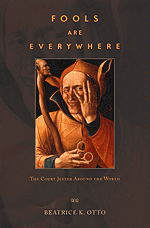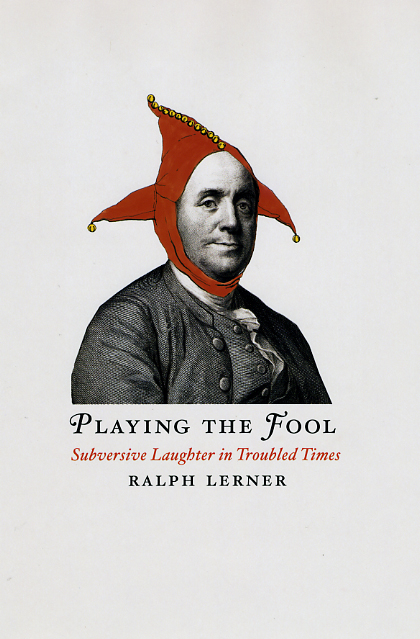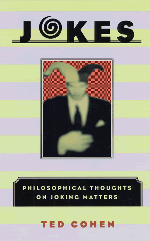Everybody Plays the Fool
This morning, Google announced it was changing its name to Topeka (in honor of the city that changed its name to Google in March). And did you fall for it? Check your calendar: it’s April 1st. Pranks and tomfoolery will abound today, but our books on fools aren’t kidding around. No joke, here’s a reading list designed especially for today.

Beatrice K. Otto
Fools Are Everywhere: The Court Jester around the World
The jester crops up everywhere, from the courts of ancient China and the Mogul emperors of India to those of medieval Europe, Africa, the Middle East, and the Americas. In Fools Are Everywhere, Beatrice K. Otto takes us on a journey around the world in search of one of these colorful, witty, quirky characters. Though most of the work on the court jester has concentrated on Europe, Otto draws on previously untranslated classical Chinese writings and other sources to correct this bias and also looks at jesters in literature, mythology, and drama. With a wealth of anecdotes, jokes, quotations, epigraphs, and illustrations (including flip art), Otto brings to light little-known jesters, highlighting their humanizing influence on people with power and position and placing otherwise remote historical figures in a more idiosyncratic, intimate light. Written with wit and humor, Fools Are Everywhere is the most comprehensive look at these roguish characters who risked their necks not only to mock and entertain but also to fulfill a deep and widespread human and social need. (Check out an excerpt from the book here and an interview with the author here.)

Ralph Lerner
Playing the Fool: Subversive Laughter in Troubled Times
The role of the fool is to provoke the powerful to question their convictions, preferably while avoiding a beating. Fools accomplish this not by hectoring their audience, but by broaching sensitive topics indirectly, often disguising their message in a joke or a tale. Writers and thinkers throughout history have adopted the fool’s approach, and in Playing the Fool, Ralph Lerner turns to six of them—Thomas More, Francis Bacon, Robert Burton, Pierre Bayle, Benjamin Franklin, and Edward Gibbon—to elucidate the strategies these men employed to persuade the heedless, the zealous, and the overly confident to pause and reconsider.
As Playing the Fool makes plain, all these men lived through periods marked by fanaticism, particularly with regard to religion and its relation to the state. In such a troubled context, advocating on behalf of skepticism and against tyranny could easily lead to censure, or even, as in More’s case, execution. And so, Lerner reveals, these serious thinkers relied on humor to move their readers toward a more reasoned understanding of the world and our place in it. At once erudite and entertaining, Playing the Fool is an eloquently thought-provoking look at the lives and writings of these masterly authors.

Ted Cohen
Jokes: Philosophical Thoughts on Joking Matters
Jokes are complicated transactions in which communities are forged, intimacy is offered, and otherwise offensive stereotypes and cliches lose their sting—at least sometimes. Jokes is a book of jokes and a book about them. Cohen loves a good laugh, but as a philosopher, he is also interested in how jokes work, why they work, and when they don’t. The delight at the end of a joke is the result of a complex set of conditions and processes, and Cohen takes us through these conditions in a philosophical exploration of humor. He considers questions of audience, selection of joke topics, the ethnic character of jokes, and their morality, all with plenty of examples that will make you either chuckle or wince. Jokes: more humorous than other philosophy books, more philosophical than other humor books.
Happy April Fools’ Day! (By the way, note that the plural possessive is the Chicago Manual of Style‘s preferred method of punctuating the holiday. And that’s no joke.)